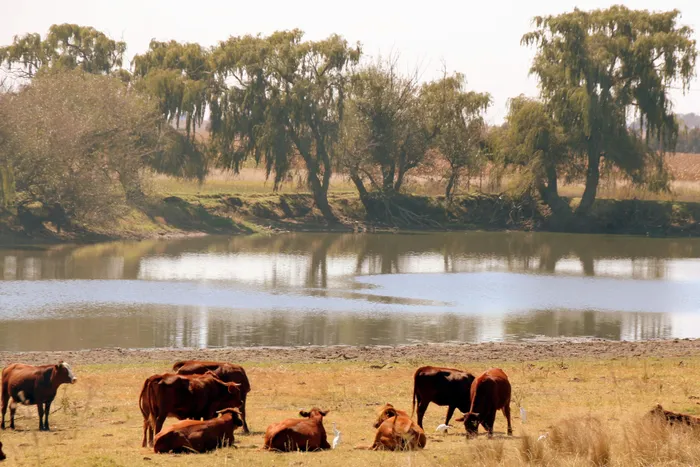KZN farmers concerned about the impact of foot-and-mouth disease on dairy sector
AGRICULTURE

KZN Agricultural associations continue to raise concern about the impact of the Foot and Mouth Disease (FMD) outbreak
Image: Nicola Mawson
The agricultural landscape of KwaZulu-Natal (KZN) is currently grappling with the relentless spread of Foot-and-Mouth Disease (FMD), which has sparked significant alarm among local agricultural associations.
As the ramifications of the outbreak unfurl, the Department of Agriculture is ramping up vaccination efforts while aiming to manage the crisis effectively.
David de Jager, CEO of Tip-Top Milk—one of South Africa's leading raw milk logistics providers—last week said that the continued spread of FMD was placing South Africa’s dairy sector under severe strain.
“Last week, the broader livestock industry, under the umbrella of the KwaZulu-Natal Agricultural Union (Kwanalu), urgently called for the formal declaration of FMD as a provincial disaster. When farms are quarantined inside Disease Management Areas, animals can't move. It affects breeding cycles, which could lead to overstocking and spikes in production costs,” de Jager said.
“We’ve had several international markets suspend imports of South African dairy and livestock products - and the reputational damage to our industry could take years to recover. It’s immeasurable.”
Kwanalu, in a statement, said that South Africa's global trade partners were watching closely as the FMD outbreak in KwaZulu-Natal continued to escalate.
“Already, China, the country’s largest red meat export market by volume, has suspended trade - the stakes for South Africa's agricultural economy could not be higher,” said Sandy La Marque, CEO of Kwanalu.
“Trade partners need to see a clear, coordinated plan that reassures them we have this under control. As reported to the World Organisation for Animal Health on April 30, KZN has experienced 167 outbreaks of FMD, with only 18 resolved and 149 still active. The outbreak, which originated in the Amajuba District, has spread beyond the gazetted Disease Management Area (DMA), largely due to uncontrolled livestock movements.”
Kwanalu said more must be done as both local and international pressure was growing. It added that the livestock industry continued to appeal for increased enforcement of movement controls, opportunities to market livestock, the development of traceability systems, and expanded vaccination capacity.
The Minister of Agriculture, John Steenhuisen, said that the department has ordered 901 200 doses of vaccines to the value of over R70 million.
“This means that over 900 000 animals will be vaccinated in all areas that the department has prioritised. Limpopo and Mpumalanga will also be conducting their routine vaccinations that are conducted three times a year.” he said.
“Some of the vaccines will go to Gauteng and KZN. Vaccination will start as soon as the vaccines are received and cleared. It is anticipated that the department will take receipt of the vaccines late next week and will then start vaccinating in the following week.”
Steenhuisen said that there was no concern for shortages; despite some feedlots being affected, there are several feedlots that are slaughtering that are not affected.
“Secondly, FMD does not kill animals, so there is not going to be mass mortalities which will result in fewer animals and therefore a shortage of meat.”
Wandile Sihlobo, chief economist of the Agricultural Business Chamber of South Africa, said the industry had learned from recent experience that this may not be the last outbreak, and there may be future outbreaks of various diseases in other value chains.
“This means South Africa, more than before, should increase its investment in animal health. We also need a similar focus on plant health. This means biosecurity is entirely more important than ever and is at the heart of any thriving farming economy,” Sihlobo said.
BUSINESS REPORT